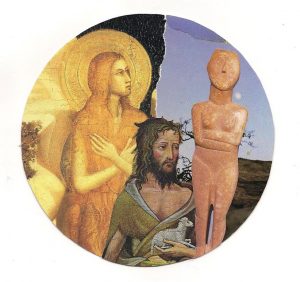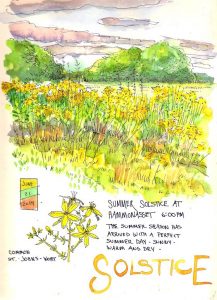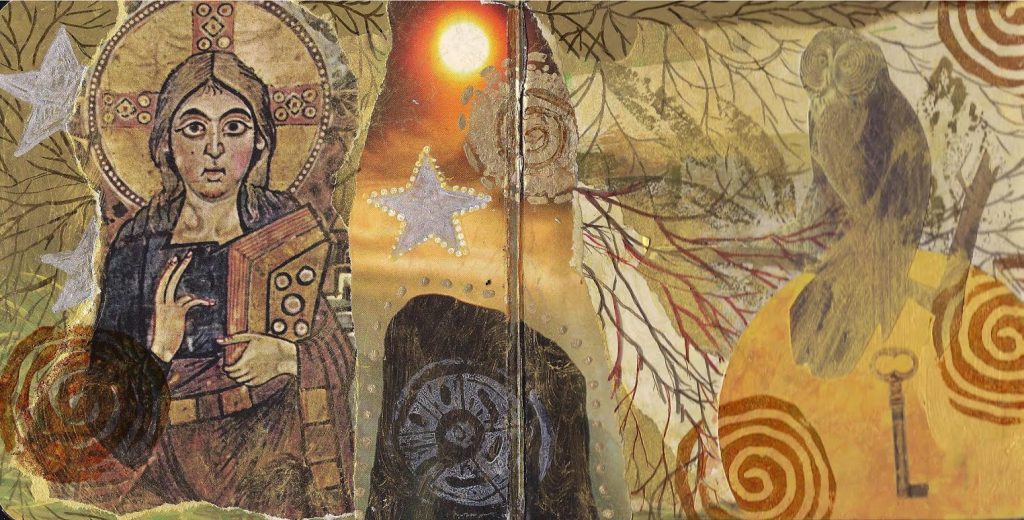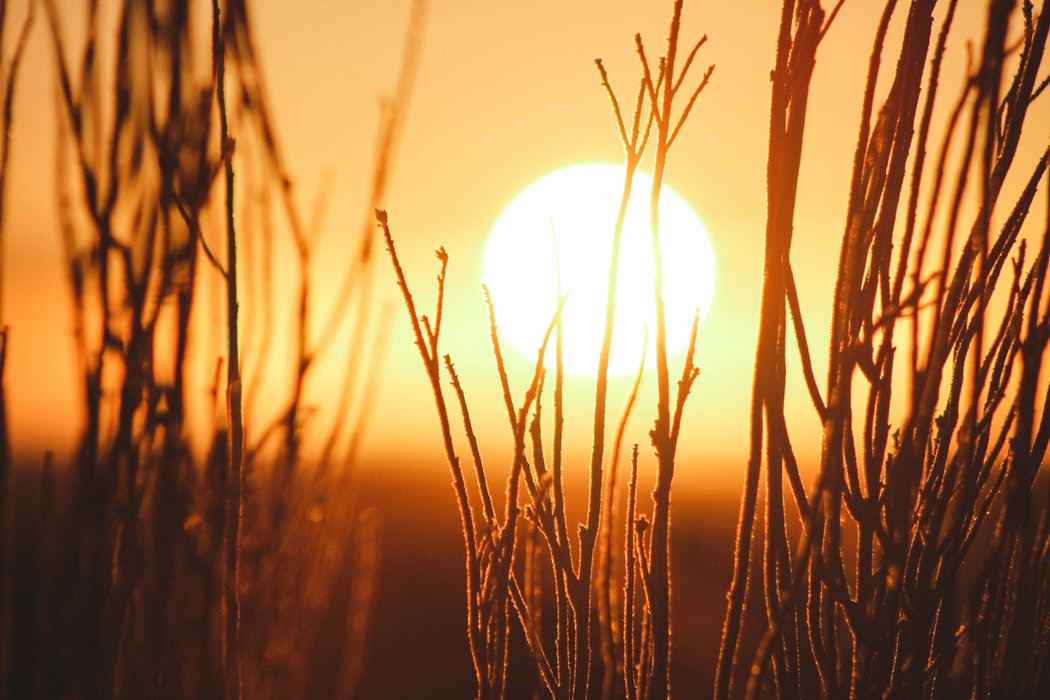By Jan Blencowe —
Probably the best known words of St. John the Baptist are “He must increase, but I must
decrease”. If you hail from a Christian tradition that marks the Saint’s Days around the wheel of
the Liturgical Year, then you’ll know that St. John’s Day falls on June 24th, the fourth day after
the summer solstice on June 21 – today!

This alignment of holy remembering and natural phenomenon is no accident. In the Western
world our thinking for the past three centuries has been shaped and dominated by scientific
thought. We tend to hold in the highest regard that which can be known empirically, and so take
little notice of the carefully planned dates within the church year that are symbolically rich and
hold metaphors and mysteries for the soul to ponder. In fact, to experience these symbolically
significant seasons you must do so in the interior landscape of your soul. Yet, you may enter
that interior world through noticing and participating in the rhythms and events in nature and
even more so through the language of images used in the creative process.
At this moment in the year John’s famous words mirror perfectly what is happening in the
cosmos. The sun, which has been increasing its presence since its re-birth at the winter solstice
in December, and more dramatically so since the spring equinox in March, climbs higher in the
sky each day bringing with it the long days and short nights we associate with June.
At the summer solstice the sun seems to hover, standing still for three days. June 24 is the very
first day in the year that the sun begins to decrease and we lose the smallest fraction of daylight
hours. This is the day the Church marks as St. John’s Day, in part as a celebration of his insight
into the preeminence of The Christ and the transformation of The Self.
In our collective imagination across times and cultures the sun often represents force, power,
strength, and self. In short, ego. It is the decline of the out of balance ego or Self that I think
John is hinting at in his famous words which foreshadow Paul’s declaration that it is “no longer I
who live, but Christ lives in me” and dovetails with Jesus’ own words ‘Truly, truly, I say to you,
unless a grain of wheat falls into the earth and dies, it remains alone; but if it dies, it bears much
fruit.’
 One of the ways my heart and mind are brought back around to this theme of increase and decrease, natural self and Christ-Self each year at this time is by creating art that delves into these potent internal movements of soul and self.
One of the ways my heart and mind are brought back around to this theme of increase and decrease, natural self and Christ-Self each year at this time is by creating art that delves into these potent internal movements of soul and self.
We all live in the body and in the spirit, in this world and in the other world at the same time. My two favorite art making types reflect this. My nature journal attunes me to the natural world and helps me unearth the spiritual wisdom hidden there. My mixed media work allows me to have a visual language that gives voice to the heart and soul.
Every summer solstice I take my nature journal and head out looking for St. John’s Wort, which is easy to find. You’re likely to find some in your area without having to look too hard. This naturalized wildflower originated in Europe, came with the settlers, and has since made its
home across much of North America. It blooms right at the summer solstice and St. John’s Day,
thus its name. Its botanical name is Hypericum perforatum. It sports a beautiful yellow, five
pointed, star shaped flower with long stamens, and has been dubbed a ray of Earth-bound
sunshine. It tends to creep and can fill wide open meadow spaces over time.
Sitting in a meadow of St.John’s Wort, soaking in the warmth of the sun, listening to the bees
humming their secret song, and focusing my gaze on the edges and outlines of flower and leaf
is a something I look forward to each June. Observational drawing is a quiet activity, and once
you get the hang of it, and your eye and your hand are working in concert, your mind is free to
wander a bit, musing and considering deeper thoughts as you work. The flowers of St. John’s
Wort become living icons, inviting me to sink deeply into the words increase and decrease and
what they might mean for me.
At the summer solstice I also like to work with found images that relate to the themes that
accompany summer solstice and St. John’s Day. By gathering images and combining them I
invite the inner wisdom of my soul to speak. These simple collages often hold powerful
message and expressions of my inner life. I like to call the process soul work.
Art can be drawing and painting, it can be tearing up images and gluing them down, it can be
planting a garden, it can be many, many things.

Marking the events of both the seasonal year and the liturgical year by creating art in any form,
is a powerful way to manifest the connectedness of your inner and outer life. It is a way to bring
the sacred forward and allow it to gently infuse all parts of your life and self with the grace that
harmonizes what must increase and what must decrease within your soul at this moment on
your journey.
I hope the brightness of this summer’s solstice day inspires you to create around the themes of
sun/son, increase/decrease, outer landscape/inner landscape in ways that are meaningful to
you.


1 comment
What a beautiful reflection. Being in a diffrent part of the world, Australia, I have to adjust my perspective, but therelevance is just as meaningful. Thank you,
Terry